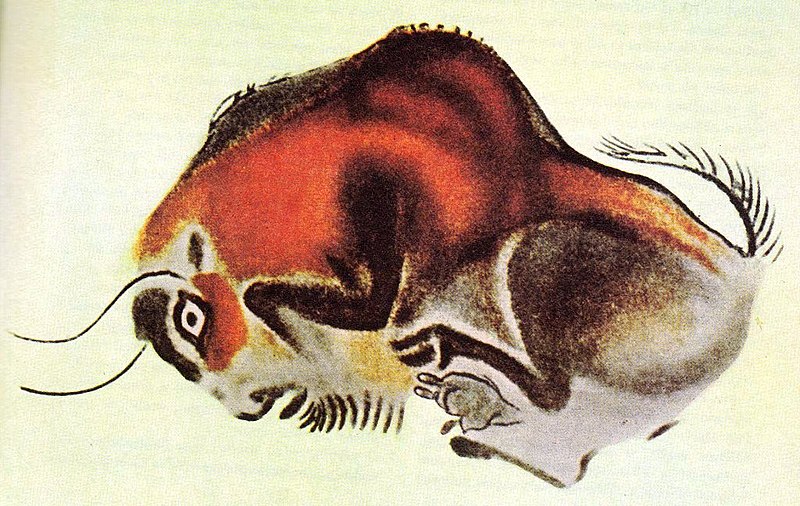The author of the study, Quentin Atkinson, is an evolutionary psychologist at the University of Auckland in New Zealand. He has found the first migrating populations that left Africa laid the foundation for all the world's cultures by taking a lone language with them when they left.
 About 50,000 years ago (though the exact timeline is debated) there was an abrupt shift in how humans behaved. This is when they first began to generate cave art, bone artifacts and more complex hunting tools. Many experts contend that this creative burst was probably caused by the development of language, which not only enabled abstract thought but also its communication to other people. The good doctor's work supports this idea.
About 50,000 years ago (though the exact timeline is debated) there was an abrupt shift in how humans behaved. This is when they first began to generate cave art, bone artifacts and more complex hunting tools. Many experts contend that this creative burst was probably caused by the development of language, which not only enabled abstract thought but also its communication to other people. The good doctor's work supports this idea."[Language] was the catalyst that spurred the human expansion that we all are a product of," Dr. Atkinson said.Dr. Atkinson figured that if a similar effect could be recognized in phonemes, it would support the idea that modern verbal communication originated in Africa and then expanded elsewhere.
His research is based on phonemes, distinct units of sound such as vowels, consonants and tones, and an idea borrowed from population genetics known as "the founder effect." That principle holds that when a very small number of individuals break off from a larger population, there is a gradual loss of genetic variation and complexity in the breakaway group.
After examining 504 worldwide languages, Dr. Atkinson found that dialects with the most phonemes are spoken in Africa, while those with the fewest phonemes are spoken in South America and on tropic islands in the Pacific.
The study also found that the pattern of phoneme usage globally mirrors the pattern of human genetic diversity, which also declined as modern humans set up colonies elsewhere. Today, areas such as sub-Saharan Africa that have hosted human life for millennia still use far more phonemes in their languages than more recently colonized regions do.These conclusions are compatible with the reigning thoughts on the origin of modern humans, known as the "out of Africa" hypothesis. Boosted by recent genetic evidence, this theory alleges that modern humans first emerged in Africa alone, about 200,000 years ago. Then, approximately 50,000 to 70,000 years ago (you'd think they'd be able to narrow that gap a little), a fraction of the population moved out and colonized the rest of the world. They became the ancestors of all non-African populations on earth.
"It's a wonderful contribution and another piece of the mosaic" supporting the out-of-Africa hypothesis, said Ekkehard Wolff, professor emeritus of African Languages and Linguistics at the University of Leipzig in Germany, who read the paper.
When it comes to the origin of the earliest languages, it's a lot harder to determine. Truly ancient languages haven't left much evidence for scientists to study because languages weren't written down until thousands of years later.
Only humans have the capacity to communicate with this language based on different grammar rules and in written form. It enables us to share ideas with others and even pass them directly on to future generations. Without language, culture as we know it wouldn't exist, so it's not hard to understand why scientists want to know more about it.
Read more about Dr. Atkinson's study.
No comments:
Post a Comment